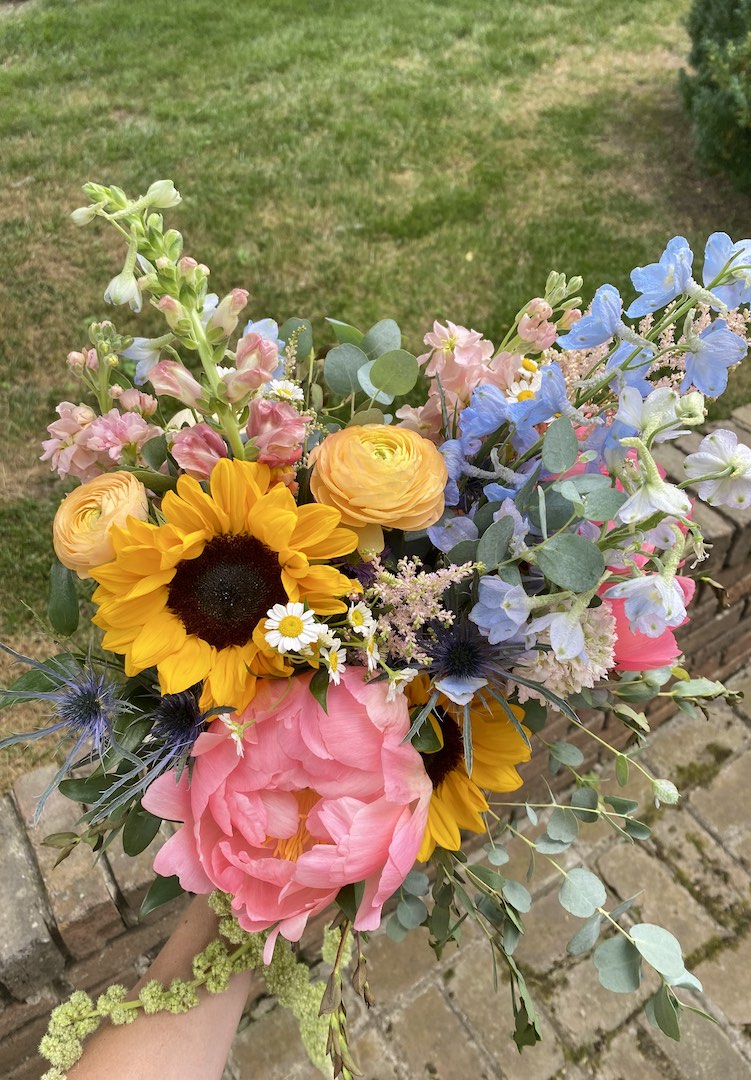Women who have experienced loss share how they’re navigating their grief
IMAGE VIA @deijistudios/instagram
WORDS BY JASMINE SHEPARD
“You can still feel grief years and years and years on, but it is just really learning how to grow around it really.”
When my best friend recently had a loved one pass, I hugged her tightly, gave her flowers and spent time with her. That part is simple when supporting someone who is grieving. But when it came to offering her verbal support, my mouth dried up and I avoided the subject altogether.
I was embarrassed to feel so utterly tongue-tied around someone so close to me and I desperately wanted to show her my love and support during this extremely difficult time. I also didn’t want to put my foot in it and say something that would make it worse (as I so often do).
Read more about navigating difficult conversations in our Life vertical.
Conversations about grief are often avoided, which is probably why my heart starts racing and my palms get sweaty while attempting to navigate a conversation with a grieving loved one.
While grief is unique and we all experience it in different ways, being aware of the best language to use to support loved ones grieving is something we can all benefit from.
After both tragically losing their mums within the space of a few months, friends Sally Douglas and Imogen Carn decided to use their grief to build a podcast, Good Mourning, and a virtual community to provide education and advice around grief.
I spoke to the duo about their personal experiences with grief, and they were so generous and raw and provided invaluable insight into navigating grief as a person grieving or a person close to someone grieving.
Grief in stages
Grief is not something to get over or move past so “we have to learn to live with it,” Imogen explains. Forms of grief evolve over time. The initial pain and raw emotions of grief slowly fade to a perpetual dull feeling that never subsides.
“There is no timeline to grief, there is no sort of graduating from it,” Imogen tells me. “I think people sometimes assume you should be over it after a certain amount of time, which just really isn’t the case. You can still feel grief years and years and years on, but it is just really learning how to grow around it really,” Sally explains.
The duo tells me ‘grief bombs’, a term coined by Sally and Imogen to describe unexpected and overwhelming emotions of grief, will still occur years after a loved one has passed.
“Grief bombs are those [times] when you are in the supermarket and a song comes on and it bowls you over. You are just full of emotion and it catches you by surprise – that will still always happen. I think the time between that happening lengthens out, but it still has that same intensity, even years later,” Imogen explains.
“The long term goal of grief is to be filled with gratitude and happy memories of your loved one, rather than sadness, which is what it feels like in the early years,” Imogen says.
Guilt and grief
The process of grieving is so often intertwined with guilt and self-judgment, regardless of whether that’s anger at your overwhelming sadness or guilt toward moments of happiness.
“Grief and happiness can co-exist. And actually, we really need those moments of joy, you know, especially like in the early days [of grief],” Sally explains.
While this is a normal response to grief, Sally and Imogen implore grievers to be kind and non-judgmental of themselves during the grieving process. “Im and I, in the weeks after our mums died, we would have moments with our friends and we were having a laugh, and think, ‘Oh my gosh, I’m having a laugh and having a happy moment. Why am I not on the floor?’” Sally reflects.
“But we need those moments of joy to be able to carry us through what is a difficult period. They can absolutely co-exist, and that is absolutely fine and totally normal. Everyone is so different and everyone’s experiences of grief are so different. So any guilt that you are feeling, try to just know that it is absolutely fine to grieve the way you are grieving. It is so unique for everyone,” she tells me.
Talk about them!
As a support person, how do you know whether your loved one actually wants to speak about the person that has passed away? I am definitely guilty of avoiding the topic altogether, but Sally and Imogen believe talking about their mums helped them move through their grief.
“I think a big misconception around grief is that when someone dies and you are supporting someone, you think that bringing up their name or by talking about them, it’s going to remind you and make you feel pain all over again,” Imogen explains.
“But it’s something that is always there for someone who has lost a loved one. They are always thinking about them and they are always grieving. If anything it is comforting to hear people [talk about them] and for people to be comfortable enough to bring up their loved one around them,” she tells me.
Be real
Don’t beat around the bush. Be real with your grieving loved ones and don’t be afraid for them to tell you how bad their situation is. But Imogen and Sally warn against trying to fix the situation.
“I think people sometimes when you are grieving, want to try and fix the situation, and they really want to help. And they might say things like, ‘Oh well at least…’ or ‘They are in a better place,’” Imogen tells me.
“Actually, sometimes that can make the griever feel minimised. So I think being mindful of that kind of language [is important].”
Knowing what language to use can help you feel confident in your conversations around grief, too. “I think before losing our mums, we didn’t realise that you have to be so mindful of the language that you use around grief,” Imogen explains.
“Even just simple tweaks… if you are asking someone ‘How are you?’, adding something like ‘today’ at the end of it leaves room for a more honest conversation. It gives the person grieving the opportunity to express how they are really feeling in that moment,” adds Sally.
Grief is a natural part of life that we will all come to experience. Through changing the language and conversations around grief, we can learn to support our grieving loved ones and begin to accept the stages of grief ourselves.
If you are struggling with grief, you can find professional support here through GriefLine.













